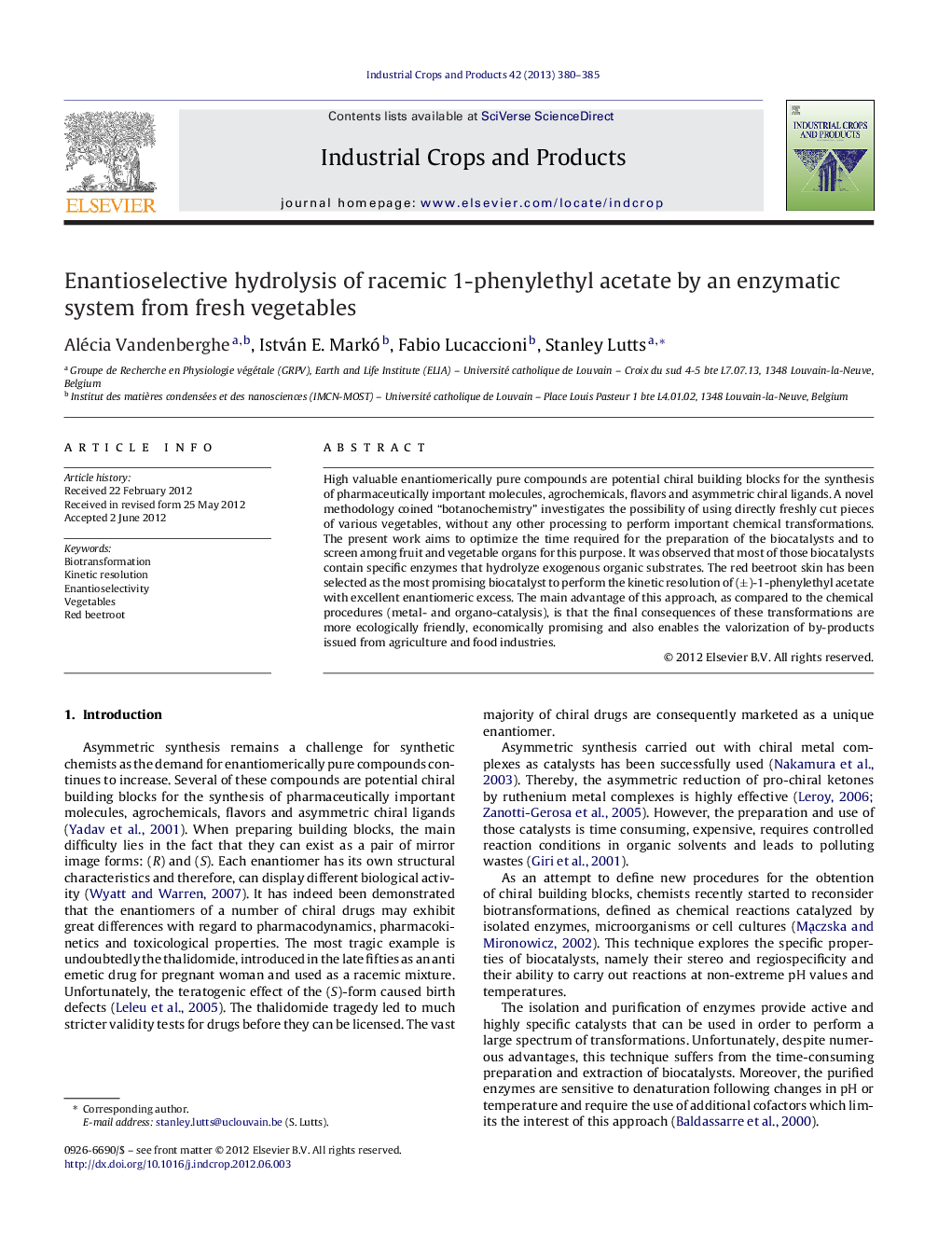| Article ID | Journal | Published Year | Pages | File Type |
|---|---|---|---|---|
| 4513758 | Industrial Crops and Products | 2013 | 6 Pages |
High valuable enantiomerically pure compounds are potential chiral building blocks for the synthesis of pharmaceutically important molecules, agrochemicals, flavors and asymmetric chiral ligands. A novel methodology coined “botanochemistry” investigates the possibility of using directly freshly cut pieces of various vegetables, without any other processing to perform important chemical transformations. The present work aims to optimize the time required for the preparation of the biocatalysts and to screen among fruit and vegetable organs for this purpose. It was observed that most of those biocatalysts contain specific enzymes that hydrolyze exogenous organic substrates. The red beetroot skin has been selected as the most promising biocatalyst to perform the kinetic resolution of (±)-1-phenylethyl acetate with excellent enantiomeric excess. The main advantage of this approach, as compared to the chemical procedures (metal- and organo-catalysis), is that the final consequences of these transformations are more ecologically friendly, economically promising and also enables the valorization of by-products issued from agriculture and food industries.
► Pieces of vegetables may perform important chemical transformations. ► Those biocatalyst perform kinetic resolution of racemic 1-phenylethylacetate with excellent enantiomeric excess. ► Redbeet skin is the most promising biocatalyst for kinetic resolution. ► These transformations are ecologically friendly and economically promising.
